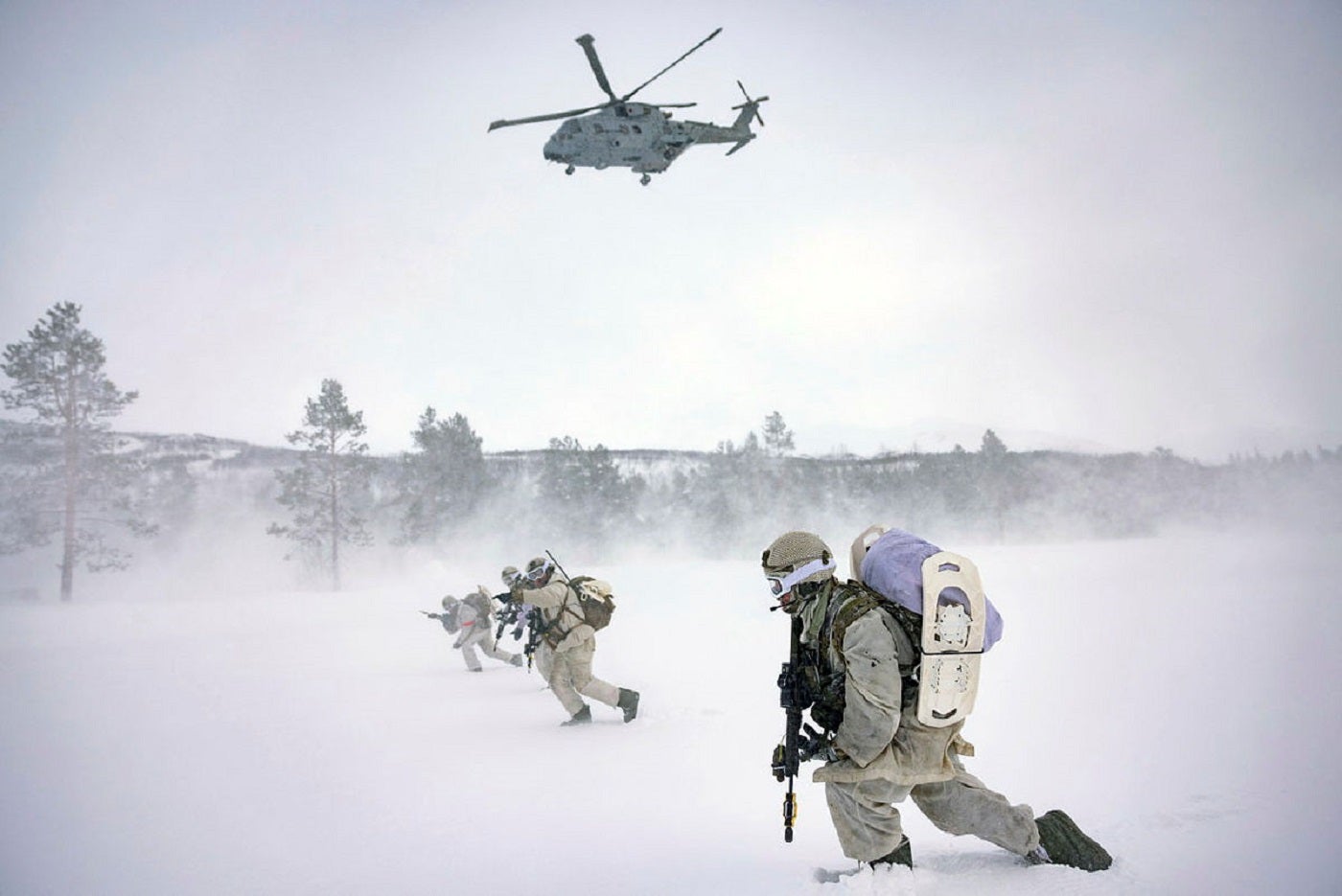
Defence Chiefs for countries in the Joint Expeditionary Force (JEF) met in Helsinki on 12 April 2023 to discuss how they can best respond to the current security crises going forward. The meeting was hosted by Finland’s Chief of Defence, General Timo Kivinen. The UK Chief of the Defence, Staff Admiral Sir Tony Radakin attended the meeting.
A range of topics were discussed: the Baltic Sea and the High North security, the future development of the joint force and the groups’ commitment to wider regional stability.
The JEF is a group of ten like-minded, northern European nations: the UK, Denmark, Estonia, Finland, Iceland, Latvia, Lithuania, the Netherlands, Norway and Sweden.
The Chiefs agreed to continue the enhanced programme of JEF exercises and activities in the High North, Baltic Sea and North Atlantic region. Recently, forces from JEF nations have taken part in operations and exercises together, including in the Baltic Sea and Exercise Joint Viking in the Arctic Circle in Norway.
“It was excellent to meet with my counterparts in Helsinki for the first time since Finland joined Nato. We discussed how the JEF can continue to complement Nato through its focus on the security of the North Atlantic, High North and Baltic Sea, and we considered how we may better coordinate future exercises and operations”, Radakin stated.
JEF deterrence
The latest JEF exercise Joint Viking, conducted in March 2023, saw the Norwegian Armed Forces lead JEF nations in an arctic warfare exercise.
Greater integration has developed beyond operating together in the battlespace. A new base for the Royal Navy’s Littoral Response Group was established in the High North. Camp Viking, as it is called, located in northern Norway, in the village of Øverbygd, stands as a base from which British Royal Commandos may conduct naval operations in the increasingly important region.
The UK Integrated Review Refresh (IRR) 2023 discusses the importance of the High North.
“We are especially invested in the format provided by the JEF, which since 2022 has had three leader-level meetings and is an increasingly important vehicle for security in the High North, North Atlantic and Baltic Sea regions. The military, security and political challenges we face across these areas demand active management, across institutional boundaries, and in close cooperation,” the IRR states.
Establishing an Arctic base for UK commandos contributes toward the UK’s military strategy of relationship building with partners, like Norway and other Nato countries, as well as strengthening their military capability in a range of climates. It allows for a more integrated fighting force that is formulated on the premise of interdependent military deterrence.
Finland’s role
As a newly inducted member of Nato, Finland is living up to its commitments to the international defence community in maintaining the rules-based order. The country borders Russia in the north-east which has demanded a lot from the country in that region.
Most recently, Finland has strengthened its maritime border security in the Baltic Sea, which has become a key strategic space for Russia and their invasion of Ukraine. It also gives Russia access to the High North, where Finland stands to defy the implications of Russia’s militarisation and exploitation of energy resources in the Arctic region.




